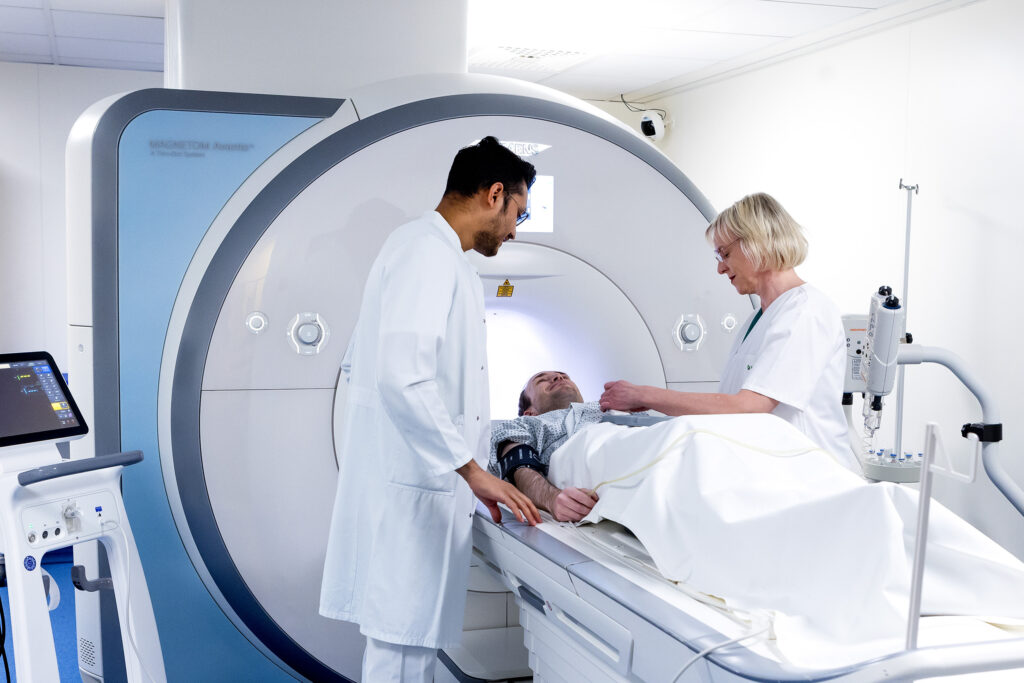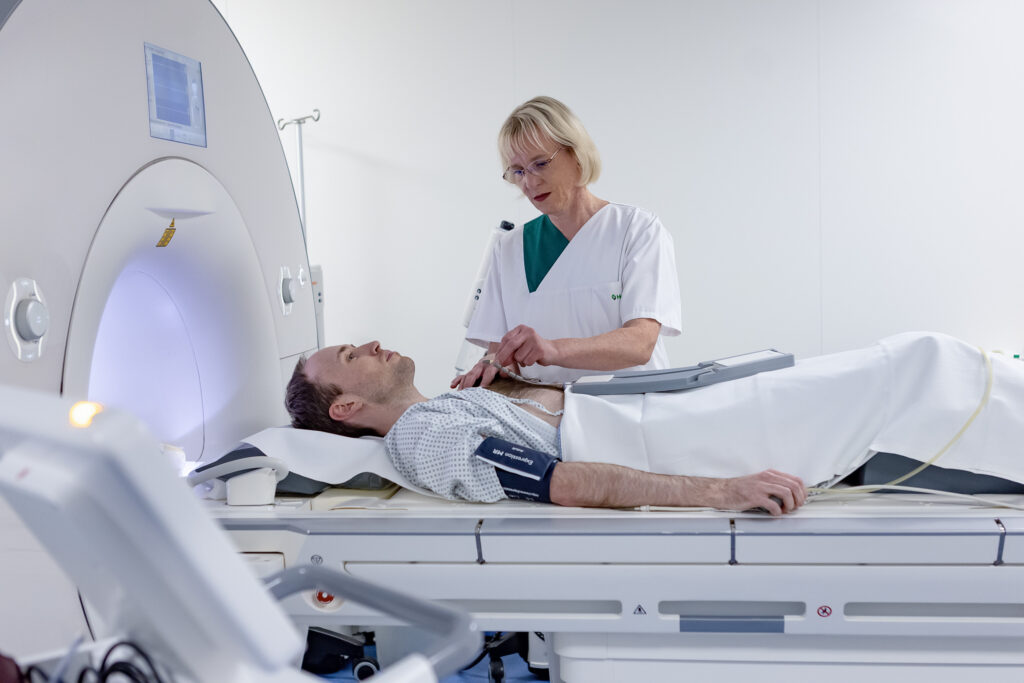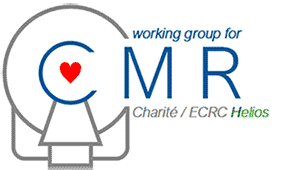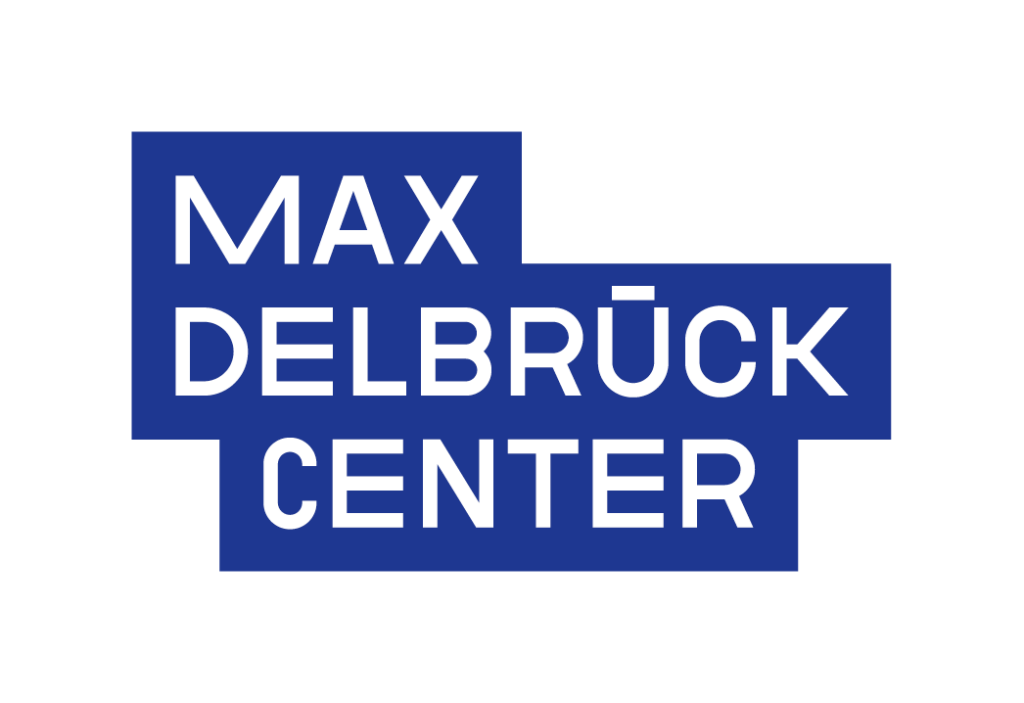Dear Patients,
Here you will find information about the procedure and risks associated with the MRI examination. If you have any further questions, please do not hesitate to call us or contact your primary care physician.
You can make appointments at the Cardiac MRI department at the Helios Clinic Berlin-Buch
Tel: 030/9401 53536
Fax: 030/9401 53549
We offer outpatient cardiological care for special heart diseases in the University Outpatient Clinic for Cardiology.



Patient Information
Before the examination
Before the examination, we will explain the procedure and possible associated risks to you. We ask about your previous medical history in addition to previous surgeries and allergies, amongst others. If you suffer from claustrophobia, we can give you medication to calm you down to make the examination manageable, provided you are accompanied by a guardian afterwards.
It would be helpful if you could bring all documents from preliminary examinations with you.
Directly before the examination, you will be asked to remove all metal objects. This includes credit cards, watches, jewelry, keys, hearing aids and small change/coins. The magnetic field can attract these materials and cause serious injuries. Also, the image quality will be reduced.
You should also therefore avoid clothing items such as pants with metal zippers, bras with underwires, jackets, vests, and hoodies/pullovers.
It is important that you do not consume any caffeinated foods or beverages 24 hours before your stress-MRI including coffee (even decaffeinated), black, green, or white tea, cocoa, or chocolate products as well as Coca-Cola and any energy drinks! You can take your medication (including Beta-blockers) as usual before the examination.
During the examination
Stickers with electrocardiogram (ECG) leads will be applied to you on the examination table. The ECG helps create an image of the beating heart/collect information about your heartbeats and breathing. A surface coil is also placed on the upper body which processes the received signal.
Some MRI examinations will require a well-tolerated, non-iodinated contrast medium and/or medication (stress-MRI examinations) for better visualization. Both are administered via venous (IV) access. You will be informed about the appropriate preparation when the appointment is made.
During the examination we will ask you to hold your breath several times. This serves to improve the image quality since breathing movements can blur the image and make diagnosis difficult.
After the examination
After the examination, you are usually allowed to go home without further observation. However, if you have been given a sedative because of claustrophobia, you must refrain from driving or operating any machinery for 24 hours after the examination and must be taken home accompanied by a guardian.
Risks and Risk Groups
MRI examinations are practically risk-free. However, due to the magnetic field some objects containing metal may be attracted and overheat.
The following risk groups are therefore usually excluded from an MRI examination:
- Patients with metal implants such as pacemakers, defibrillators or drug pumps that are not MRI compatible
- Patients with vascular clips in the head placed after brain surgery (e.g., after Brain Aneurysm bleeding/ Hemorrhagic Stroke)
- Pregnant patients at certain weeks/trimesters
The examination is usually harmless for patients with:
- Recent bone and joint implants (usually made of Titanium or other non-magnetic material)
- Coronary-stents
- Vascular clips (small metal clips used to close vessels e.g., after bypass operations)
Ultimately, nerve stimulation may also occur due to electromagnetic impulses (peripheral nerve stimulation). In extremely rare cases, the examination may cause tingling or slight muscle twitching.
| General Information General functional purpose of magnetic resonance imaging (MRI) |  | Known risks General information about risks of the examination |  |
| Before the examination Things to consider before the examination |  | Stress Cardiac MRI examination Stress examinations using magnetic resonance imaging |  |
| During the examination Things to be aware of during the Examination |  | Contrast Medium What you should know about magnetic |  |



